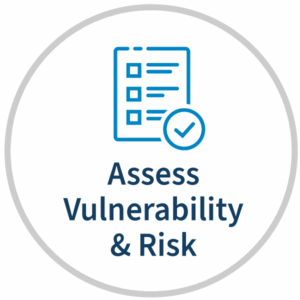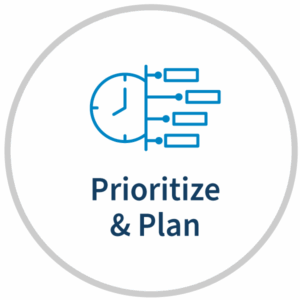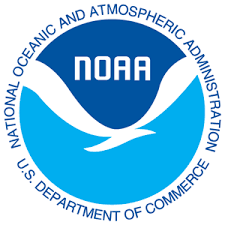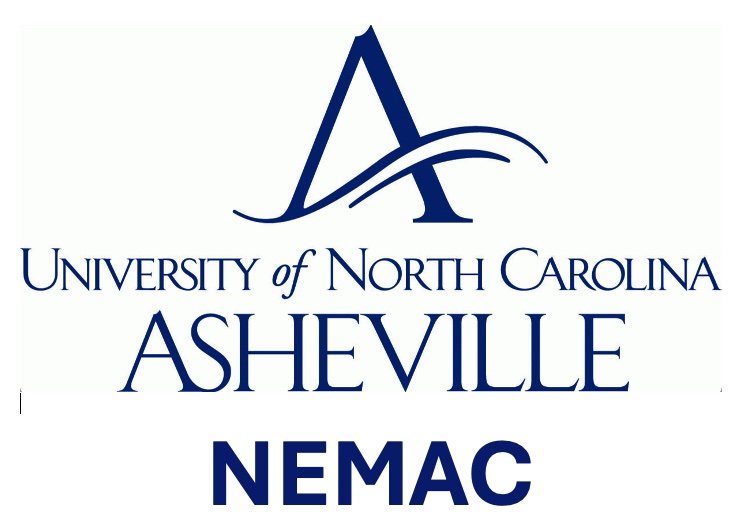Training & Workforce Development

CSCI is committed to building the capacity of local communities to become more resilient to climate-related threats and impacts. As part of that commitment, and our conviction that a climate-ready workforce is central to our mission, CSCI invests in the development and delivery of training opportunities for climate adaptation practitioners and community leaders.
CSCI offers this free, self-guided training course in partnership with National Oceanic and Atmospheric Administration (NOAA), Fernleaf, and the National Environmental Modeling and Analysis Center (NEMAC). It takes learners through the Steps to Resilience, a systematic and community-centered approach to risk assessment and risk management focused on climate-related impacts.
Build a Stronger, More Climate-Resilient Future with the FREE Steps to Resilience Course
The Steps to Resilience guides climate adaptation practitioners and community leaders through the process of identifying local climate-related hazards, identifying pressing community-relevant issues, and developing and prioritizing strategies to collaboratively create and implement adaptation and resilience plans.
Start Your Free Course Today!
Start the Steps to Resilience eLearning modules at no cost—no enrollment needed—and gain instant access to practical planning tools from principles and definitions to ready-to-use templates.
What’s In It For Me?
Turn complex climate-related challenges into actionable, equitable climate resilience and adaptation strategies. This course was built for maximum flexibility and efficiency:
- Each module takes approximately 90 minutes to complete.
- Complete the modules asynchronously, as time allows.
- Modules can be completed in the order that supports your current needs and goals.
Designed to Support Practitioners & Community Leaders
This course is designed to empower those driving resilience efforts in their communities including: ✦ Newer climate adaptation practitioners who are working through the phases of climate adaptation planning; ✦ Community leaders working with adaptation practitioners and cultivating community buy-in; ✦ CSCI grantees and prospective applicants.
Practitioners (Analysts, Planners, Resilience Officers)
- Learn to define and measure vulnerability (sensitivity and adaptive capacity) and risk (probability and impact).
- Apply common prioritization methods to select the most impactful adaptation and resilience options.
- Understand the key steps for successful plan execution, including effective community engagement and securing necessary funding or financing.
Community Leaders, CSCI Grantees, Applicants
- Learn to work through the phases of climate adaptation planning.
- Learn how to work within the community to come to consensus on key community goals and foster a sense of collective responsibility among partners.
- Develop resilience strategies and actions that are innovative and fair for the entire community.
- Summarize the necessary implementation plan components and address future climate uncertainty to secure project funding.
- Write an implementation plan designed to secure funding and address future climate-related hazards.
Your Complete Resilience Toolkit
The course includes six online eLearning modules that take about 90 minutes each to complete, plus three practical, downloadable tools to help implement the Steps to Resilience in your community.
The Steps to Resilience eLearning Modules
-

Get Started
Launch your community resilience project.
Learn to immediately identify the essential skills, plans, and community engagement strategies and help define the community’s climate adaptation and resilience vision and goals.
-

Understand Exposure
Determine who and what is most susceptible to hazards.
Learn to identify complex relationships to delineate the project area and the data to understand how climate-related hazards may affect community assets and priorities.
-

Assess Vulnerability & Risk
Assess the community’s ability to cope with climate change.
Learn to define and measure vulnerability and risk and apply “rulesets,” directly informing where to focus community resources.
-

Investigate Options
Explore a range of effective and fair resilience options.
Learn to identify reliable information sources to develop strategies and actions that are both innovative and fair for the entire community.
-

Prioritize & Plan
Select the most impactful resilience options.
Learn to apply common prioritization methods and summarize the necessary implementation plan components to address future climate uncertainty and secure project funding.
-

Take Action
Execute the community resilience plan.
Learn key steps for implementation, including effective community engagement, securing funding or financing, and considering monitoring and evaluation indicators.
Practical Tools
These resources help you move from theory to implementation (they will download to your computer automatically):
- Climate Resilience Workbook [doc]
- Resilience Spreadsheet Repository [xls]
- Resilience Template Slide Deck [ppt]
Supporting Resources
- The Steps to Resilience Practitioner’s Guide draws on practical experience supporting climate adaptation across the U.S. to help practitioners balance decisions and evaluate their outcomes.
- The U.S. Climate Resilience Toolkit shares tools, case studies, and other resources to help users implement what is learned in the training.
Ready to Transform Your Community?
Start the FREE Steps to Resilience eLearning course immediately—no enrollment needed—and gain instant access to practical planning tools.



